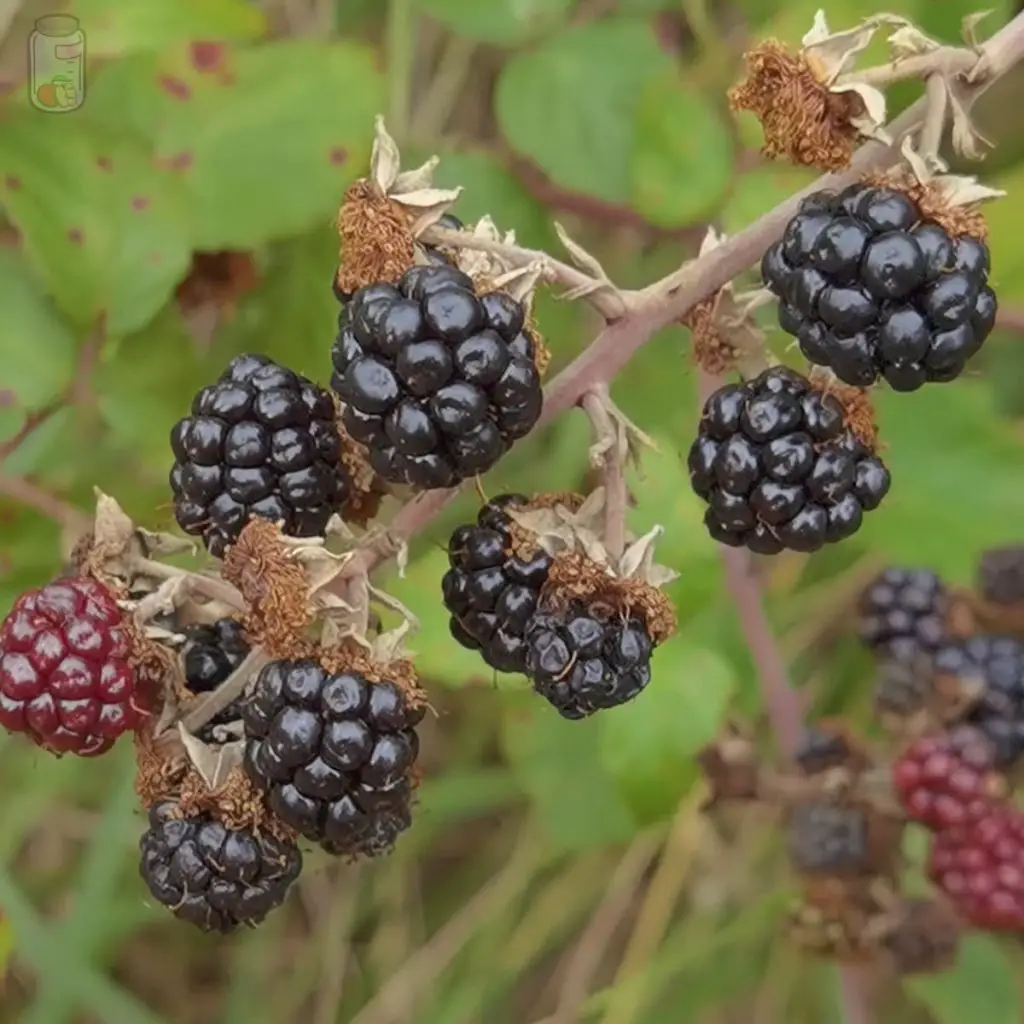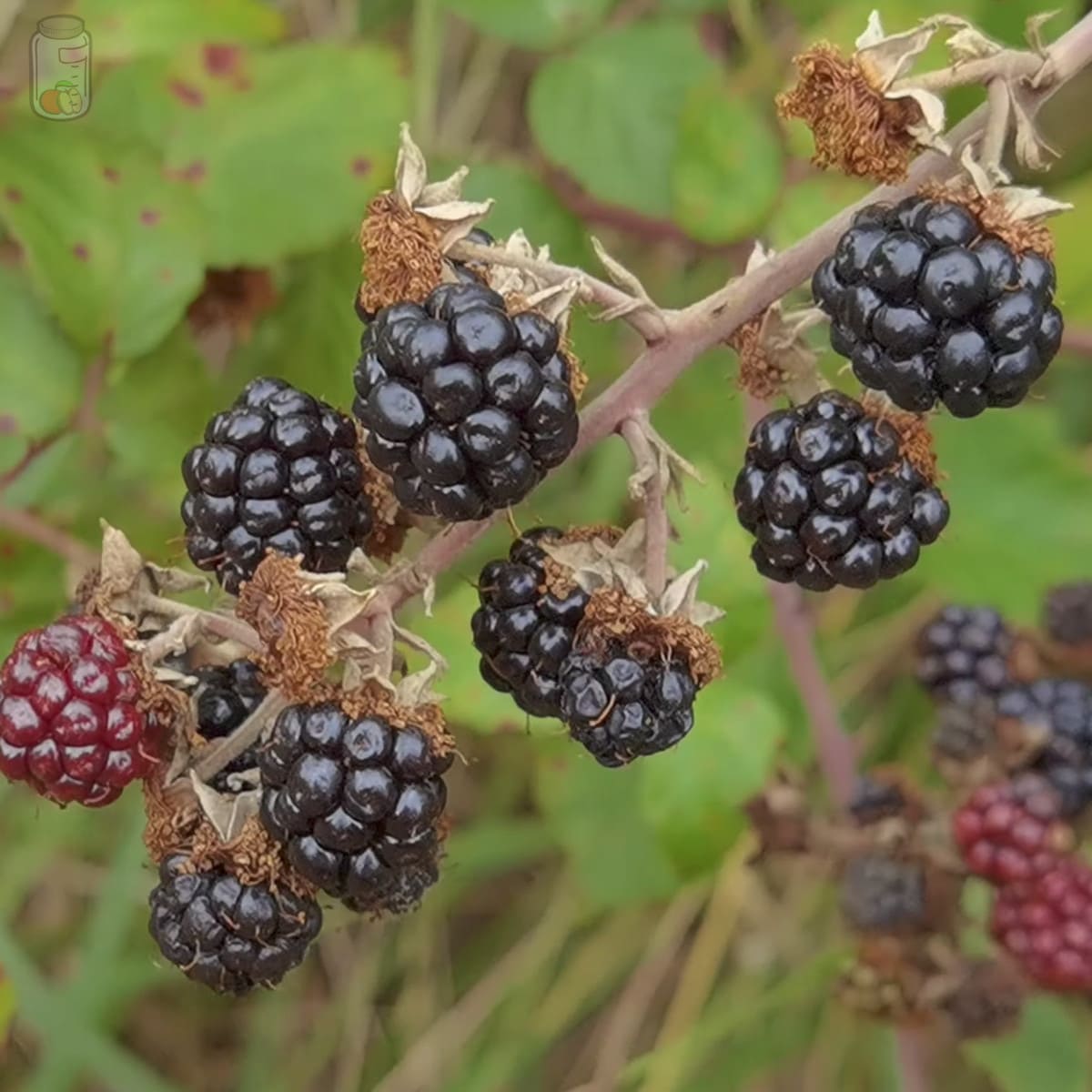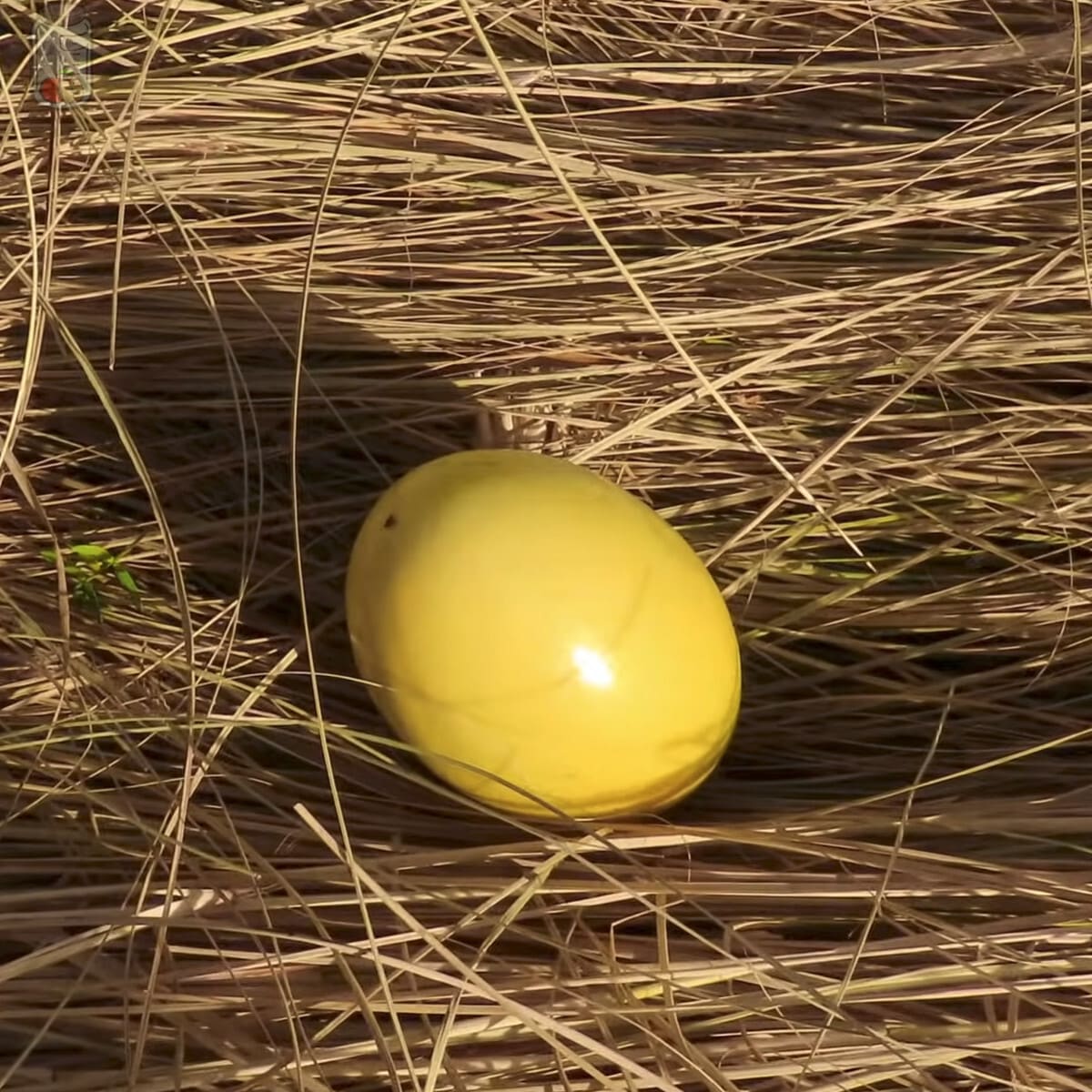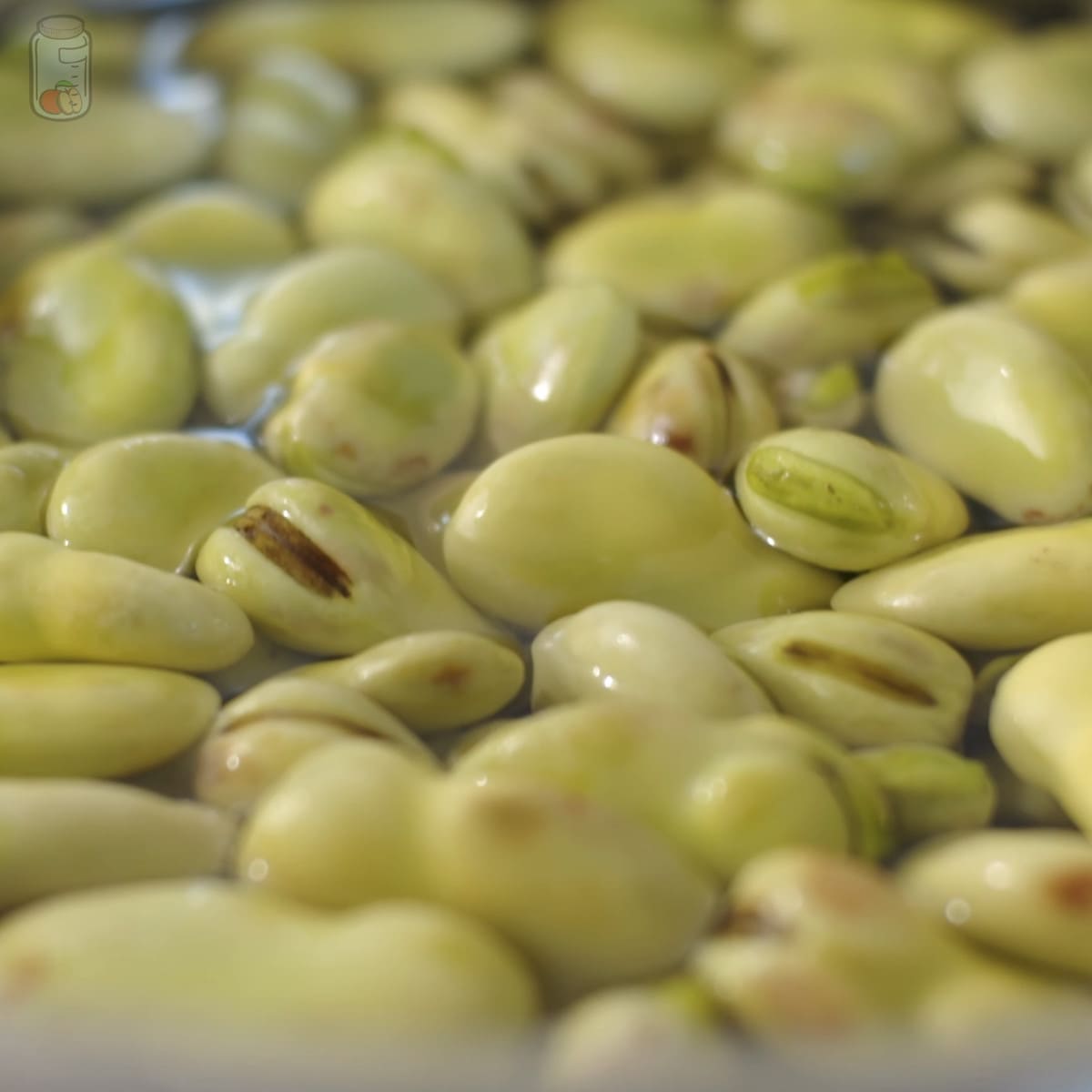If you are wondering how to store blackberries, you are in the right place. I will explain the methods available to extend their shelf life and how to apply them.
Blackberries are highly delicate; therefore, in the fridge, they will barely resist between 1 or 2 days if they are ripe or 3 to 6 days if they are fresher. You can freeze them for four months, dehydrate them for one year, or prepare a jam and store it for 12-18 months.

To apply any of these techniques, you must continue reading.
How to store blackberries in the fridge
Blackberries cannot be too long at room temperature; therefore, the first option that always comes to mind is to store them in the refrigerator, and for this, you will have to do the following:
- Step 1: Dry the blackberries.
Most of the blackberries you buy tend to come a little wet. If you store them that way, they will not last long, so as soon as you arrive, spread the blackberries on a tray with paper towels and remove the ones that look bruised.
Then, dry them carefully to remove traces of moisture. In this case, you should not wash the blackberries with water. Instead, leave that for when you go to eat, freeze or use them for some other recipe.
- Step 2: Line the container where you will put the blackberries with paper.
As blackberries usually lose a lot of moisture, place absorbent paper inside the container. You can also put the blackberries in a bag but wrap them before putting them there.
By the way, the container and the bag should not be airtight since blackberries need to breathe. So, if you put the blackberries in a container, cover them with more paper or a non-airtight lid, or if you put them in a non-paper bag, make some holes in the plastic bag.
- Step 3: Store the blackberries in the fridge.
You have to leave the blackberries in the coldest area of your refrigerator. Please do not leave them in the vegetable drawer, as they will not be sufficiently aerated there.
If you follow all these tips, fresh blackberries can be kept refrigerated for 3 to 6 days, but if they are very ripe, they will last only 1 or 2 days. [1] [2]
How to freeze blackberries
Can blackberries be frozen? Of course, you can freeze blackberries. In addition, most people usually store them in this way since they last longer, and to do it in the right way, follow this indication:
- Step 1: Wash and dry the blackberries.
To wash them, you should use tap water. Fill a bowl, dip the blackberries, and stir. Try to rub them carefully with your fingers to remove dirt. Remove blackberries that are in poor condition.
Then, drain them and leave them in the colander for a while, and put them on paper towels to finish drying them.
- Step 2: Freeze the blackberries for 3 or 4 hours.
Place the blackberries on a tray with parchment or wax paper without piling up, then put the tray in the freezer and freeze for 3 or 4 hours to prevent them from sticking.
- Step 3: Transfer the blackberries to a freezer bag.
Put the frozen blackberries in an airtight bag in the freezer, although you could also use a resistant airtight container.
- Step 4: Enter the storage date.
Put the storage date on the bag or container, and you will have better control over blackberries. You can write the date directly on the container, stick a label or place some tape and place the date on top.
- Step 5: Store the blackberries in the freezer.
Blackberries last four months in the freezer. [3]
When you need to thaw them, pass a portion to the fridge the night before. There they can be one more day, and remember that blackberries cannot be re-frozen.
One trick that might help you keep blackberries in the freezer longer would be to bathe them with sugar and then divide them into several servings in sturdy bags or containers.
In this case, carrying out the first freezing would not be necessary since it would be stored directly. Blackberries dipped in sugar could last up to 9 months in the freezer.
How to preserve blackberry juice
If you have prepared a good amount of blackberry juice, you can store the remaining one in the fridge, in a jar with a lid, away from foods that emit a strong odor, and without ice. In this way, the blackberry juice will last 5 or 7 days refrigerated.
Another option would be to gel the juice. You can put it inside an airtight bag and seal it well or pour it into molds to make ice cubes. In either case, you must freeze them first and then pass them to a large bag suitable for freezing.
The blackberry juice will keep for 8 to 12 months in the freezer. Remember to set the storage date.
How to dehydrate blackberries
One way to keep blackberries for a long time is to dehydrate them, plus it makes them a healthy snack to eat whenever you feel like it or to add to various recipes.
- Step 1: Wash and dry the blackberries.
To wash them, fill a bowl with cold water, dip the blackberries, and stir them. Try to rub them with your fingers carefully to remove dirt. Remove blackberries that are in poor condition.
Drain them and leave them for a while in the colander, then put them on a clean towel or absorbent paper and finish drying.
- Step 2: Dehydrate the blackberries.
If you have a food dehydrator, put the blackberries on their trays evenly, and without piling them up or gluing them much, the ideal would be to leave space between them.
Set the temperature to 120°F(50°C) and dehydrate for 18 or 36 hours, depending on how large the blackberries are.
If you use an oven, preheat it to the lowest temperature, around 190°F (90°C). Then, arrange the blackberries on a tray with parchment paper or a nonstick sheet, leaving space between them, and bake for 3 or 8 hours.
After the first hour, turn to the blackberries. Then, after having tried another hour, return them to the initial position, and you should check every hour until they are ready.
Blackberries will be dehydrated when once cold when squeezed, they will fade and sound like when a paper is crumpled. Be careful not to burn them.
- Step 3: Transfer the dried blackberries to airtight containers.
I advise using glass jars with airtight lids to store dried blackberries at room temperature, but you will also serve plastic and airtight bags or containers.
Just wait until they cool to put them in the containers. At this point, you could crush the dried blackberries to make a powder and store them similarly.
To crush blackberries, use a food processor or a blender or put them inside an airtight bag and crush them with a heavy object.
- Step 4: Set the storage date.
You can stick a label with the date, write it directly on the container or bag, or on the piece of tape that you have attached to it.
- Step 5: Store the blackberry dehydrated.
You can store the dried blackberry at room temperature for an entire year; you have to leave it in a dry, cool, and dark place. Or if not, store the dried blackberry in the freezer for 2 to 5 years, in a sturdy container.
How to preserve blackberry jam
If you have a lot of blackberries and do not know what to do with them, you can make a rich jam, which will preserve for a long time.
To prepare it, for the total weight of blackberries, you need 40% sugar (for 1 lb. of blackberries, you need 0,4 lbs. of sugar)and half a lemon juice.
- Step 1: Wash and prepare the blackberries.
Put the blackberries in a bowl of cold water to wash them. Then, drain them and throw them in another bowl, and add the sugar and lemon juice, stir well, and let them stand for several hours, or you can leave it overnight in the fridge, just make sure to cover the container well.
- Step 2: Place a glass plate in the freezer.
Before preparing the blackberry jam, put a glass dish in the freezer that will then serve you to know if the jam is ready.
- Step 3: Prepare the blackberry jam.
In a thick-bottomed pot, pour the blackberries to which you added the sugar and lemon juice. Turn on the stove over medium heat and cook for 30 or 45 minutes, constantly stirring with a wooden spoon and removing the white foam that forms on top. After the indicated time, turn off the stove.
- Step 4: Taste the jam.
Take the plate out of the freezer, add some of the jam, and put it in the fridge for 3 minutes. Take it out, and if the jam curdled correctly when you pass a finger to the mixture, it shouldn’t move.
Otherwise, you will have to cook it again for 5 more minutes to reach that point.
- Step 5: Transfer the blackberry jam to the containers.
Use glass jars with screw caps or airtight, which have been previously sterilized (boil for 10 minutes); at this point, they should be completely dry.
Wait for the blackberry jam to cool before passing them to the glass jars, but leave one finger free.
- Step 6: Vacuum-seal the blackberry jam.
In a large pot with a thick bottom, place a clean kitchen cloth at the bottom, or put a rack, and on top, arrange the jars with blackberry jams so that they do not collide with each other or with each other the pot.
Fill the pot with water, until the jars are covered; turn on the stove to the maximum and when it starts to boil, lower it to a minimum and cook for 20 or 30 minutes. At this time, the air will come out of the jars.
Then, turn off the heat and leave the jars inside the saucepan until the water cools. Then, you can remove the jars and let them rest in a place with shade for between 6 and 12 hours.
- Step 7: Write down the preparation date.
To do this, you can stick a little tape to the bottle, write the date on top, or put a label on it.
- Step 8: Save the blackberry jam.
You can store this jam in the pantry at room temperature if the weather does not exceed 25°C (77°F). The jar sealed with blackberry jam can be 10 to 12 months at room temperature, but it can only be between 3 and 4 months once opened.
If the temperature is above 25°C, keeping the blackberry jam in the fridge for between 12 and 18 months will be more convenient, as long as the jar remains sealed, and once opened, it will stay for six months in the refrigerator.
You can also freeze the blackberry jam, you will only have to use an airtight container or bag suitable for freezing, and you can skip the sealing part. Blackberry jam can be frozen for 2-5 years.
How long do blackberries last?
| Product | Duration |
| Fresh blackberry in the fridge | 3 – 6 days |
| Ripe blackberry in the fridge | 1 – 2 days |
| Fresh blackberry in the freezer | 4 months |
| Blackberry in the fridge covered with sugar | 9 months |
| Blackberry juice in the fridge | 5 – 7 days |
| Blackberry juice in the freezer | 8 – 12 months |
| Dehydrated blackberry at room temperature | 1 year |
| Dehydrated blackberry in the freezer | 2 – 5 years |
| Blackberry jam at room temperature (sealed) | 10 – 12 months |
| Blackberry jam at room temperature (open) | 3 – 4 months |
| Blackberry jam in the fridge (sealed) | 12 – 18 months |
| Blackberry jam in the fridge (open) | 6 months |
| Blackberry jam in the freezer | 2 – 5 years |
How to know if the blackberries got bad?
Blackberries will be damaged if they are very watery and not firm. If that’s the case, throw them away.
If blackberries taste weird or bad or smell bad, they also get bad; therefore, you should not eat them.
It is also not a good sign if blackberries appear with black and white spots or lint because they have developed mold and are no longer suitable for consumption.
What is the best way to preserve blackberries?
Blackberries are best preserved inside the freezer because they can be kept for quite some time, mainly if you cover them with sugar, so they may be able to maintain their flavor for longer.
You can refrigerate fresh blackberries for several days, but if they are very ripe (super wet), they will only last a few days.
Another storage alternative is dehydrating the blackberries since it will preserve them for a long time and at room temperature.
Another option with blackberries is to prepare a jam (one of my favorites).
If you seal them, you will keep them for a long time, or you could freeze them directly.
To know how to preserve other types of berries or fruits, you can consult this site whenever you want since I keep updating them regularly with many topics focused on preservation.
[1] https://foodsafety.gov/keep-food-safe/foodkeeper-app
[2] https://lee.ces.ncsu.edu/wp-content/uploads/2012/12/TheFoodKeeper.pdf?fwd=no
[3] https://foodbanksbc.org/wp-content/uploads/2014/12/Food-Storage-Guidelines3.pdf







